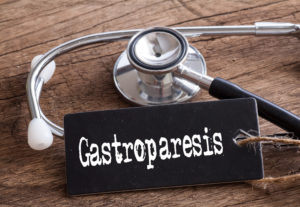 There are many factors that affect health and illness. Some you are unable to control, but some you can.
There are many factors that affect health and illness. Some you are unable to control, but some you can.
In addition to making positive lifestyle choices, having gastroparesis will likely push you to seek what does continuously and doesn’t help, what hurts, and what works best for you.
It is not always easy, but sorting this out can help improve your health and quality of life.
Treating Gastroparesis With Chiropractic Care
Here are some things to consider when dealing with gastroparesis.
Taking preventative steps can help relieve your symptoms, lessen the undesirable impact the condition has on your daily life, and enhance your overall well-being.
Be Aware of Causes and Complications
Recognizing the symptoms, knowing the causes, and being aware of complications that can arise from gastroparesis can help prevent delays in obtaining the appropriate treatment.
Although the cause is most commonly unknown (idiopathic), 1 in 4 people suffering from gastroparesis can attribute their condition to a complication arising from long-standing diabetes.
Gastroparesis can also arise:
- After the use of certain prescription medications, such as calcium channel blockers, anticholinergic/antispasmodic agents, narcotic pain killers, some diabetes medications, and some antidepressants
- As a problem related to some surgical procedures (particularly upper abdominal or esophageal surgeries)
- In association with conditions that affect the whole body, the nervous system, or connective tissue, such as multiple sclerosis, Parkinson’s disease, cerebral palsy, systemic lupus, and scleroderma
Gastroparesis can lead to:
- Adverse events resulting from drug interactions (treatments can often involve taking different classes of drugs to treat several symptoms, such as to lower blood glucose levels, reduce nausea, and reduce pain)
- Difficulty managing blood glucose (blood sugar) levels in people with gastroparesis related to diabetes
- Malnourishment due to poor absorption of nutrients or low-calorie intake
- Dehydration due to continual vomiting
- The formation of clumps of undigested food (bezoars), which can cause nausea, vomiting, or obstruction
Prevention and Management Tips
- Avoid or reduce alcohol and tobacco use.
- Be aware of possible drug interactions and discuss alternatives with your doctor.
- Before having surgery, ask your doctor, surgeon, or health care team about risks involved and weigh these against the benefits. Seek alternative treatment when practical.
- Eat small, frequent meals that are low in fat and fiber.
- Engage in regular exercise as you are able.
- If you have diabetes, maintain good control over glucose levels.
- Stay hydrated and as nutritionally fit as possible.
- Let your doctor and pharmacist know about all medications you are taking – prescription, over-the-counter, and any supplements.
- Understand the potential side effects of your treatments, and what to do if side effects occur.
- Work with a registered dietitian (RD) or nutrition support specialist (nurse or doctor) to design a dietary plan to meet your personal needs; understand how to use and maintain dietary and nutritional therapies.
Seek appropriate care and be an active participant in your health. Working with your doctor or health care team will help control, reduce, and prevent symptoms or complications.
